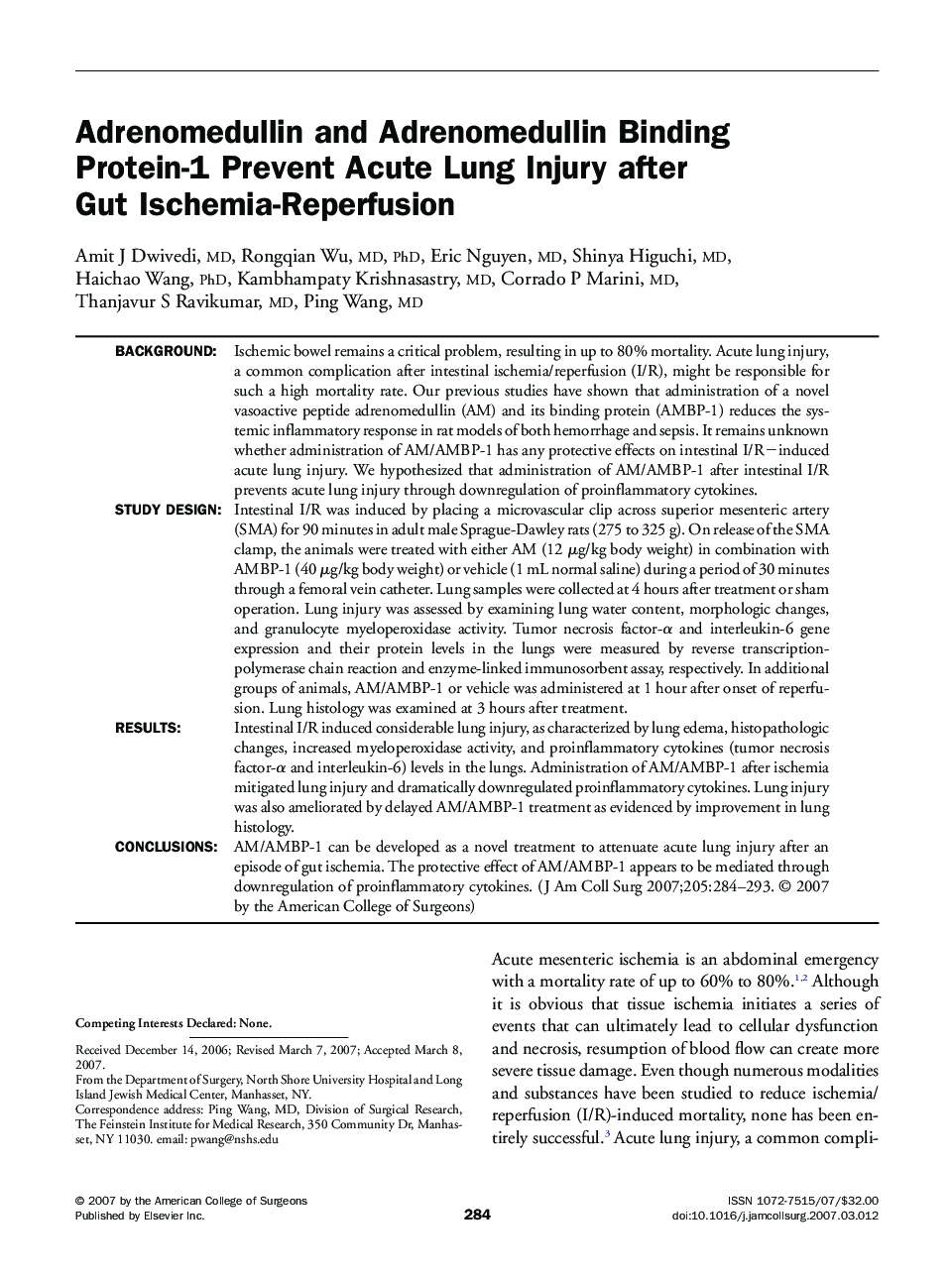| کد مقاله | کد نشریه | سال انتشار | مقاله انگلیسی | نسخه تمام متن |
|---|---|---|---|---|
| 4295539 | 1612323 | 2007 | 10 صفحه PDF | دانلود رایگان |

BackgroundIschemic bowel remains a critical problem, resulting in up to 80% mortality. Acute lung injury, a common complication after intestinal ischemia/reperfusion (I/R), might be responsible for such a high mortality rate. Our previous studies have shown that administration of a novel vasoactive peptide adrenomedullin (AM) and its binding protein (AMBP-1) reduces the systemic inflammatory response in rat models of both hemorrhage and sepsis. It remains unknown whether administration of AM/AMBP-1 has any protective effects on intestinal I/R−induced acute lung injury. We hypothesized that administration of AM/AMBP-1 after intestinal I/R prevents acute lung injury through downregulation of proinflammatory cytokines.Study DesignIntestinal I/R was induced by placing a microvascular clip across superior mesenteric artery (SMA) for 90 minutes in adult male Sprague-Dawley rats (275 to 325 g). On release of the SMA clamp, the animals were treated with either AM (12 μg/kg body weight) in combination with AMBP-1 (40 μg/kg body weight) or vehicle (1 mL normal saline) during a period of 30 minutes through a femoral vein catheter. Lung samples were collected at 4 hours after treatment or sham operation. Lung injury was assessed by examining lung water content, morphologic changes, and granulocyte myeloperoxidase activity. Tumor necrosis factor-α and interleukin-6 gene expression and their protein levels in the lungs were measured by reverse transcription-polymerase chain reaction and enzyme-linked immunosorbent assay, respectively. In additional groups of animals, AM/AMBP-1 or vehicle was administered at 1 hour after onset of reperfusion. Lung histology was examined at 3 hours after treatment.ResultsIntestinal I/R induced considerable lung injury, as characterized by lung edema, histopathologic changes, increased myeloperoxidase activity, and proinflammatory cytokines (tumor necrosis factor-α and interleukin-6) levels in the lungs. Administration of AM/AMBP-1 after ischemia mitigated lung injury and dramatically downregulated proinflammatory cytokines. Lung injury was also ameliorated by delayed AM/AMBP-1 treatment as evidenced by improvement in lung histology.ConclusionsAM/AMBP-1 can be developed as a novel treatment to attenuate acute lung injury after an episode of gut ischemia. The protective effect of AM/AMBP-1 appears to be mediated through downregulation of proinflammatory cytokines.
Journal: Journal of the American College of Surgeons - Volume 205, Issue 2, August 2007, Pages 284–293